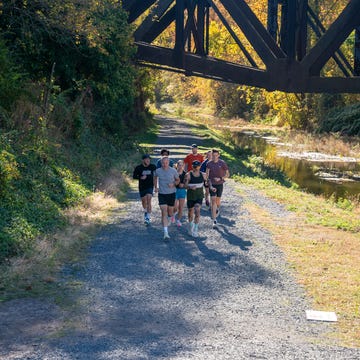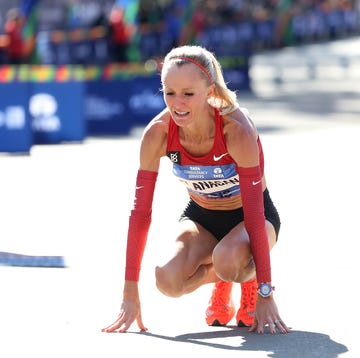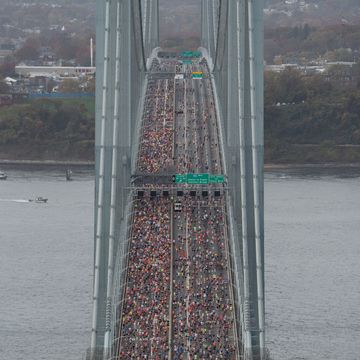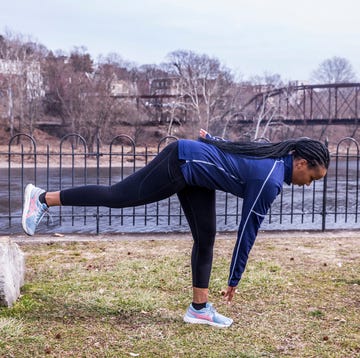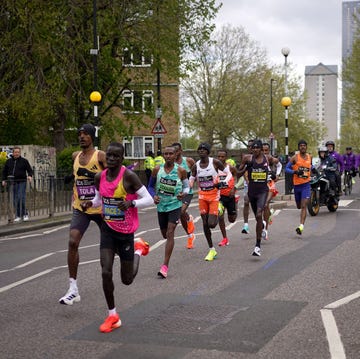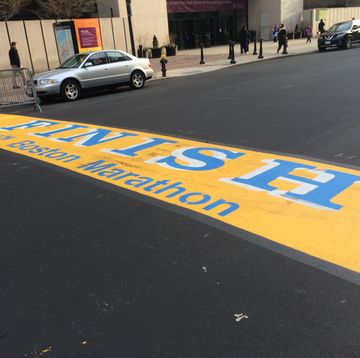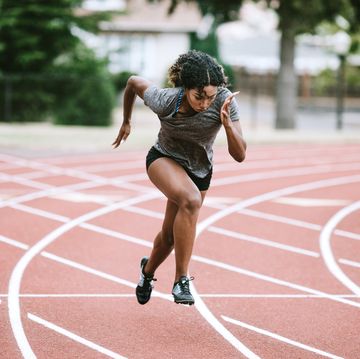In July, the National Distance Running Hall of Fame in Utica, N.Y., inducted two historic but contrasting marathoners, Dick Beardsley and Miki Gorman. Beardsley is a charismatic speaker with a compelling story, while Gorman is self-effacing and reticent. Yet her story, when I spent time privately eliciting it, is equally compelling.
She was born Michiko Suwa in 1935, to Japanese parents in China, where her father was serving in the imperial army of occupation. During World War II, she and her younger twin brothers were evacuated from Tokyo just before horrific firebombing razed the city. At age 8 she helped her little brothers survive. After the surrender in 1945, she started school, walking six miles there because there was no bus.
Marathon running has long been revered in Japan, and in 1951, as the nation began to emerge from defeat, it sent a team to Boston, including the winner, Shigeki Tanaka.
"But no women ever ran in Japan in those years. Women could not do anything so public," Gorman says. There is thus a case for seeing her as precursor of Japan's famed line of women marathoners, as well as being a pioneering American.
She moved here in 1963 at age 28, working in Carlisle, Pa., and attending college. She married businessman Michael Gorman, and moved with him to Los Angeles. There she became probably the only person ever to take up running to gain weight, and the only major marathoner to begin by running entirely indoors.
"I was embarrassed that I was so small," she says. "My husband helped me go to the gym where he was a member, and I began to run. I had strange looks. Someone told me I should be home in the kitchen. But I had one mentor, and he encouraged me to enter a 100-mile/24-hour indoors race, in the gym. Yes, hundreds of laps. The first year I stopped at 86 miles. I cried."
She ran this annual indoor ultra five times, before she became, she says, "fed up" and tried cross country, where for the first time she encountered other women.
"The first race, I saw a tall girl, and thought, 'I will try to stay with her.' I did, and then beat her," she says. "I loved cross country."
Advised by Laszlo Tabori, the great athlete-coach from Hungary, Gorman tried track, and finally found the marathon. All those indoor laps paid off. In Culver City, Calif., in December 1973, she ran 2:46:36, missing the world record by 6 seconds. She was 38.
She won Boston in 1974 and 1977 and New York in 1976, in 2:39:11, again the second-fastest time ever. She retained the New York title in 1977, now 42 and a new mother. The Avon Women's Running Circuit sent her and her baby to Japan, as a role model Japanese women could identify with. What she saw made her happy to be an American.
&The groundbreaking Japanese-American star of the 70s was inducted into the Hall of Fame.
So a child of that defeated and restricted society was now a winner and role model in a worldwide movement for opportunity. She became a world-record breaker, with 1:15:58 for the half marathon in 1978.
There were difficult times, for such a modest person. In 1976, pressured to gate-crash the Montreal Olympics in protest against the lack of a women's marathon, she declined. She lost contact with the sport, moving with her daughter to Vancouver. Last year, when the New York Road Runners honored her as Runner of the 1970s, she didn't attend. She needed persuasion even to travel to the Hall of Fame.
&Running Shoes - Gear.
After the ceremony, hearing Larry Rawson's stirring tribute, and embraced by her fellow pioneers of women's running, she didn't say that again.
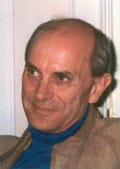
Roger Robinson is a highly-regarded writer and historian and author of seven books on running. His recent CA Notice at Collection How to Run Twice a Day Without Injury Running Times and is a frequent Runner’s World contributor, admired for his insightful obituaries. A lifetime elite runner, he represented England and New Zealand at the world level, set age-group marathon records in Boston and New York, and now runs top 80-plus times on two knee replacements. He is Emeritus Professor of English at Victoria University of Wellington, New Zealand, and is married to women’s running pioneer Kathrine Switzer.


